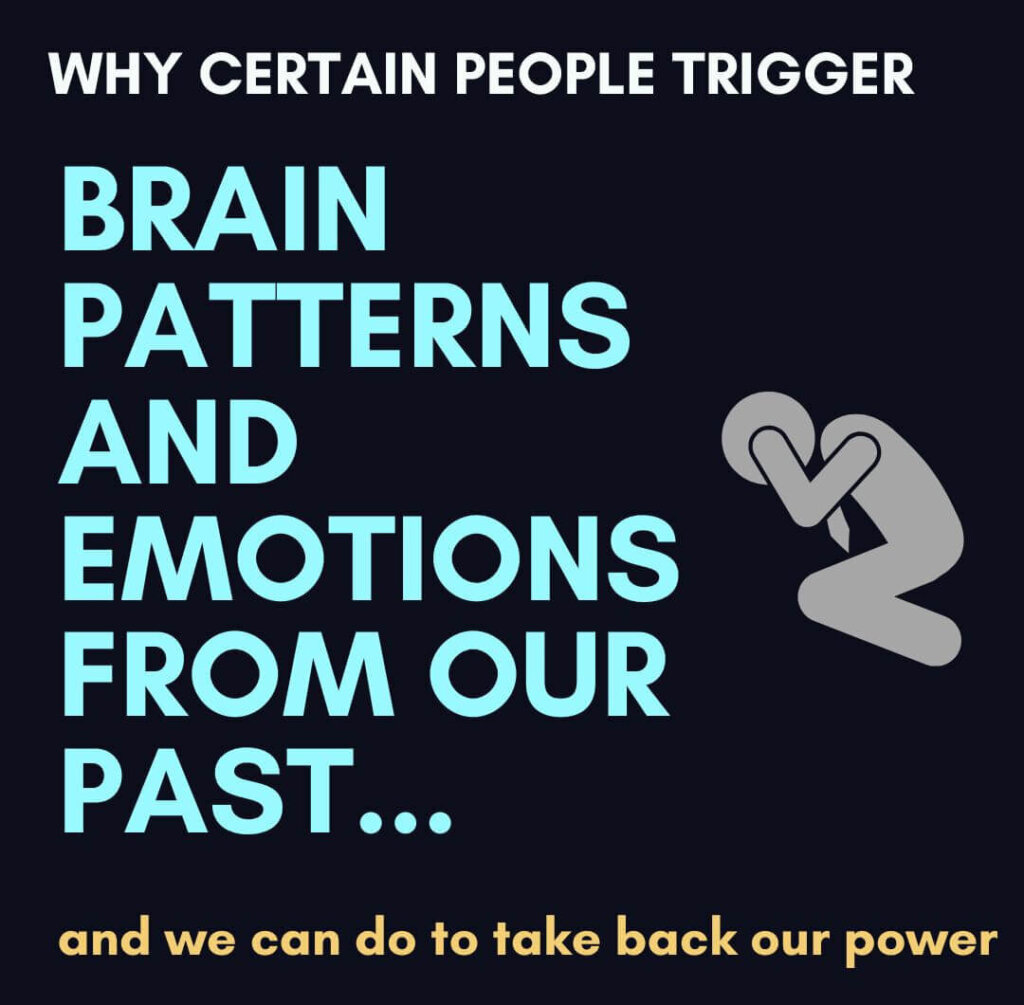When you're around your friends, you're your 'best self'... You're clever, funny, charismatic, evolved.
Then you find you find yourself among family members.
Or that friend that seems to drain the life energy from you.
Something changes.
All of a sudden, that glow you had when you were with your supportive friends is gone.
You seem more serious.
You feel more defensive.
You hesitate sharing your real thoughts.
Sound familiar? What's happening there?
You're technically the same person, right? So why would your behavior change so much?

It comes down to circuits, pathways and associative networks.
The first time we activate brains cells in response to an event or stimulus, those cells communicate. As cells communicate, they increase the chance they’ll communicate again.
The more cells 'talk', the more the brain sends resources to these networks and circuits to make their communication more efficient. This makes sure the signals between those cells travel even faster. This is how you learn pretty much everything. Including how you respond to social and emotional stimuli.
Most of your life is run by pathways.
An example of this is how you put your pants on in the morning,or how you drive to work.
Once you have a way of doing this that you have repeated enough times, your brain conserves energy by devoting resources to make that an established pathway of communication. You put your pants on with the same leg first every time without thinking about it. You likely often drive to work or a familiar place without thinking much about it.
The tricky thing is, this same thing happens when you are with other people, this leads to automatic reactions that destroy relationships.
When you have autopilot reactions to someone,you are ignoring the biofeedback in both you and the other person that would allow you to connect with how that person is truly feeling.
This is what disconnects us. This is what causes pain in our relationships.
Here's how it might look in your own family:
Growing up with your family - let's say there are one or more people who are 'nay-sayers', who don't really 'get you', who think you are too much of one thing or not enough of another... Being around those same people over and over means that you are likely having similar thoughts going on whenever you are around them.
You have associative networks built up related to those family members.
This means that for the most part, most of your family members (including you) will have automatic reactions to each other. It also can translate into associative networks that activate in other social scenarios that have similar nonverbal and verbal cues.
People are reacting to their own auto-pilot thoughts from the past, rather than actually seeing each other with fresh eyes in that moment. Even if you've 'grown out' of many of your behaviors from when you were a kid, it's possible your family won't see it, OR.. some of the behaviors that were created many years ago (and served their purpose in some way), are still activating.
It's important for us to be aware of this.
Here's the thing... Because those networks are 'efficient', the brain - as an energy-efficiency-driven-system - will tend to preserve what has been automated and well-used.
This means that you will likely NOT spontaneously break out of pathways until you realize you even have them.
The good news is that.. Just the simple act of realizing you're in auto-pilot, can break the spell...
Just notice where in your life you might be on autopilot. If you have similar interactions with someone, or similar feelings over and over.. There's some autopilot going on.
The only way to have new thoughts and not fall into the trap of auto-pilot (pathways from the past), is.. you have to deliberately make the intention to do so.
You create new, more regulating and empowering communication pathways in your brain by specifically and deliberately deciding to pause before you do that thing you always do.
- and simply notice it. You might not have enough brain resources to do it differently YET.. but noticing a repetitive pattern activates powerful circuitry in your prefrontal regions that help you engage in ‘suppress and switch’ activity.
As you're about to react/text/reply in a way that might look like how you've done it in the past, take a moment and just notice.
That tiny bit of extra awareness is enough to help your mind come up with something new. Or start with something really simple like how you put your pants on each day.
Stop for just a moment and choose - the same leg or a different one. You can even do this in the shower. Stop for one moment before you grab the shampoo bottle and then feel yourself choosing to pick it up. Or pick it up with a different hand.
That is where your power lies. In choosing.
Once you are choosing your actions more often, auto-pilot has much less of a chance to run your life.
“You can’t navigate well in an interconnected, feedback-dominated world unless you take your eyes off short-term events and look for long term behavior and structure"
- Donella Meadows, Systems Thinking: A Primer
I go over pathways and intentionality in this Podcast Episode on the Inner Critic
As well as in this article and a fan favorite episode on Self-Regulation
In the upcoming Season 5 Episode 1, I interview a highly acclaimed, Harvard Trained Neurosurgeon and professor. We talk about love and connection, following our primal instincts and negative effects of social media.
So excited about the global, growth-minded group that is coming together for the 2025 Neuro Leader Academy!
We will be having 1-on-1 sessions, group workhops, and a chance to showcase your work/project/initiative to a global audience! Some people are also going to get their own personalized brain maps.. can't wait to see how much of an impact this program is going to have and the incredible international community we are building.


